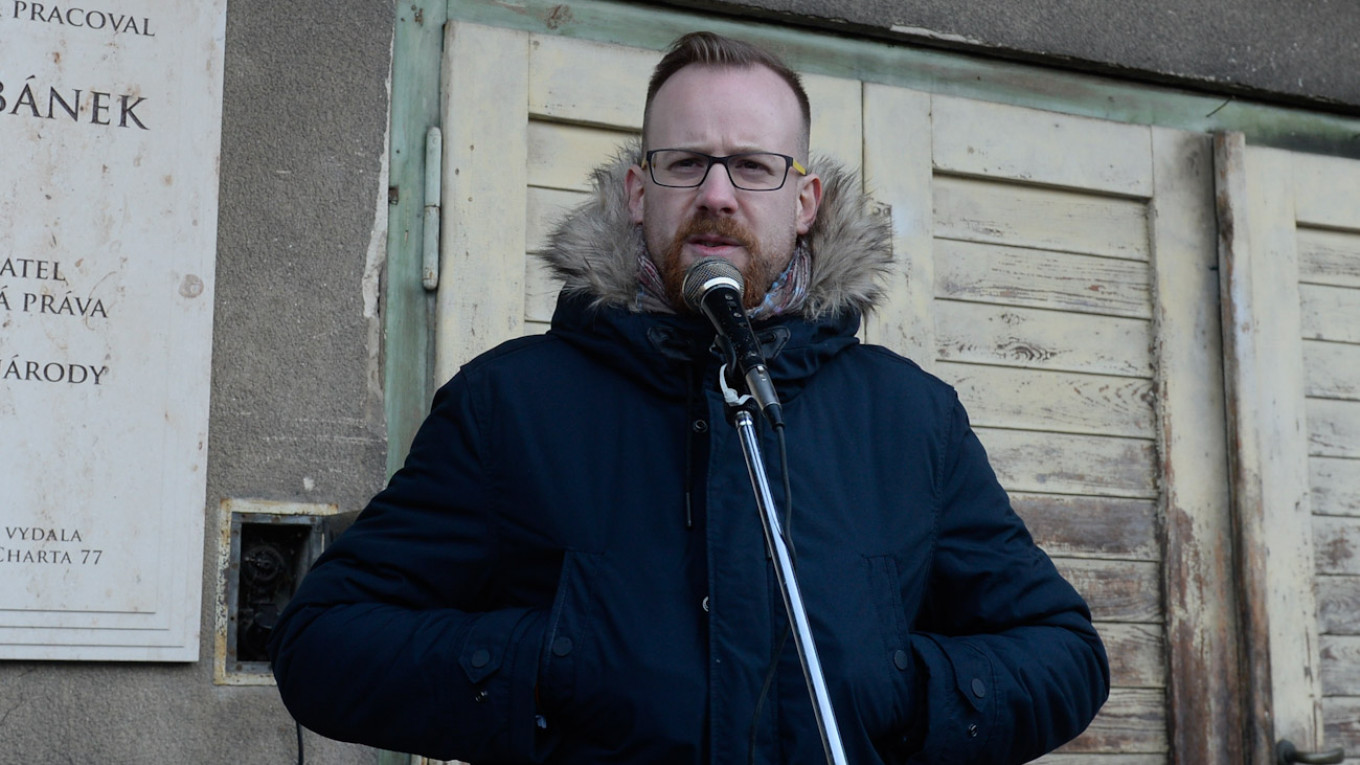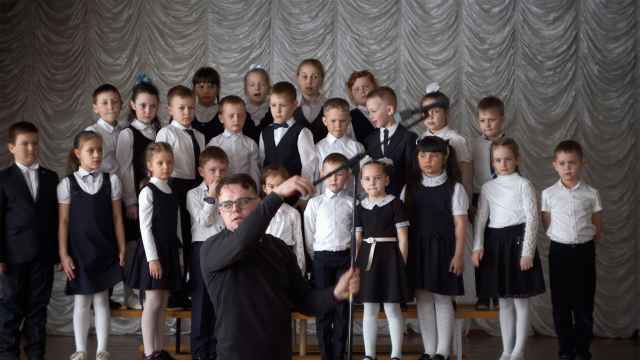The report was as startling as it was alarming. According to the Czech news magazine Respekt, a Russian foreign service officer had flown into Prague with a suitcase of ricin poison and the mission to assassinate the city’s mayor, Ždenec Hrib, as well as two other men: Ondrej Kolar and Pavel Novotny.
There is no doubt that Hrib and Kolar in particular have angered Moscow. The decision to rename the square in front of the Russian embassy after murdered opposition figure Boris Nemtsov prompted the diplomats to change their postal address to a side street. The removal of a statue to Soviet Marshal Ivan Konev, regarded by Moscow as the liberator of Prague in the Second World War, but seen locally also as a prime mover in the suppression of the 1968 Prague Spring, sparked fury and even an investigation into alleged “defiling of symbols of Russia’s military glory” by the Investigative Committee.
Furthermore, Hrib, Kolar and Novotny are all now under police protection.
Problems with the story
For all that, the story is hard to take at face value. It is based on a single anonymous report, and has not had any official corroboration. Local experts such as General Andor Šándor, former head of military intelligence, have cast doubt on it. Moscow, predictably, also denied the account, with Kremlin spokesman Dmitry Peskov calling it a “hoax.”
There are also practical issues with the story as it stands. Ricin was used to murder Bulgarian dissident Georgy Markov in London in 1978 and CIA double agent Boris Korczak in Virginia in 1981. However, the Russians do not seem to have used it since, and while extremely deadly, it is also relatively easy to identify in the body.
Also, both Russia and the Czech Republic had closed their borders by this time. While a handful of diplomatic and repatriation flights coming in and out of the airports, any assassin would be highly visible coming in (and, indeed, the Czech government has confirmed that an accredited diplomat did arrive in the time in question), let alone getting out.
Considering that no one person could carry out the assassination of three separate officials, this would also require the services of numerous other Russian intelligence officers. Given that they would be operating in a city under stringent lockdown, under the gaze of humans and cameras alike, the chances that all or most would be identified is high.
Most importantly, this would be wholly out of keeping with Russian practice, and a massive escalation. Of course, the Kremlin, regarding itself in an existential political struggle against an overbearing West that wants to deny it its rightful place in the world, does kill.
However, outside Ukraine, its targets have exclusively been Russians. The Chechen rebel leader Zelimkhan Yandarbiev, blown up in Qatar in 2004. The whistle-blower Alexander Litvinenko, poisoned with Polonium in London in 2006. The turncoat military intelligence officer Sergei Skripal, targeted in the UK in 2018. The sundry Chechen rebel organizers and fundraisers shot in Turkey, and most recently the Georgian Chechen Zelimkhan Khangoshvili, gunned down in Berlin last year (although was a Russian citizen, his Chechen ethnicity and role fighting with the rebels no doubt meant he counted as far as Moscow was concerned).
In every case, they have been, in Putin’s (in)famous formulation, not “enemies” but “traitors,” those who owed loyalty to the Russian state and chose instead to defy it.
Three possibilities
There would thus seem to be three possible interpretations, each of which has their own alarming implications.
The first is that this is simply a hoax or a misunderstanding. Outspoken politicians such as Hrib (who has also managed to get under Beijing’s skin by his vocal support for Taiwan) and Kolar do receive threats from domestic sources. Furthermore, even intelligence work is often a matter of probability rather than certainty, and it could be that accurate materials were nonetheless interpreted in an inaccurate way.
However, what is striking is the extent to which an uncorroborated story based on a single anonymous source has nonetheless been accepted by so many as fact, and is no doubt already being read into the record. This will no doubt resurface periodically when people want to make the case that Putin’s Russia is an out-of-control murder machine.
To the greatest extent, this is the Kremlin’s responsibility. You cannot murder enemies, annex portions of neighbouring countries and otherwise act like a geopolitical gangster and not get a bad name. However, the degree to which many people — including policy-makers and those who advise them — are therefore always willing to believe the worst of Russia is a serious problem.
It means that the current geopolitical rivalry becomes a self-perpetuating standoff, with mutual paranoias feeding off each other. Such an environment makes any improvement in relations all the more difficult.
The second option is that this really was a planned series of Kremlin-sanctioned assassinations. To start killing elected foreign officials, especially in a country such as the Czech Republic which is neither a particular friend or foe of Moscow’s, would be a massive and worrying change in Russian policy.
The Nemtsov Square and Konev statue issues infuriated Moscow, to be sure, but there is no evidence that they were seen as serious threats. If the Kremlin were now willing to kill so indiscriminately, merely out of pique, and with no concern about the inevitable implications, that would say something terrifying about a change in attitudes in the Russian government. Fortunately, it does not seem at all likely.
The third option is that this is some kind of rogue operation. Ricin is, after all, relatively easy to manufacture. However, the notion that the Russian state apparatus — including foreign service personnel (presumably a member of the SVR Foreign Intelligence Service under diplomatic cover) could both stage such an operation and, presumably, feel they could get away with it, would also say worrying things about the Kremlin’s control over its own agents.
Fortunately, there is no serious evidence to suggest the worse-case scenarios need to be taken seriously.
There clearly is something about Prague, the winding medieval streets and soaring spines of its church towers, that encourages fantasy.
There was the alleged meeting of a 9/11 hijacker with an Iraqi diplomat in 1991, part of the rationale for the 2003 US-led invasion of Iraq, that proved unfounded.
There was the Steele Report claim of a clandestine meeting there between Donald Trump’s lawyer and fixer Michael Cohen and Russian officials before the 2016 elections, but the Mueller Report denied it.
This latest account is, fortunately for everyone concerned, likely simply to turn out to be one more addition to the canon.
A Message from The Moscow Times:
Dear readers,
We are facing unprecedented challenges. Russia's Prosecutor General's Office has designated The Moscow Times as an "undesirable" organization, criminalizing our work and putting our staff at risk of prosecution. This follows our earlier unjust labeling as a "foreign agent."
These actions are direct attempts to silence independent journalism in Russia. The authorities claim our work "discredits the decisions of the Russian leadership." We see things differently: we strive to provide accurate, unbiased reporting on Russia.
We, the journalists of The Moscow Times, refuse to be silenced. But to continue our work, we need your help.
Your support, no matter how small, makes a world of difference. If you can, please support us monthly starting from just $2. It's quick to set up, and every contribution makes a significant impact.
By supporting The Moscow Times, you're defending open, independent journalism in the face of repression. Thank you for standing with us.
Remind me later.








